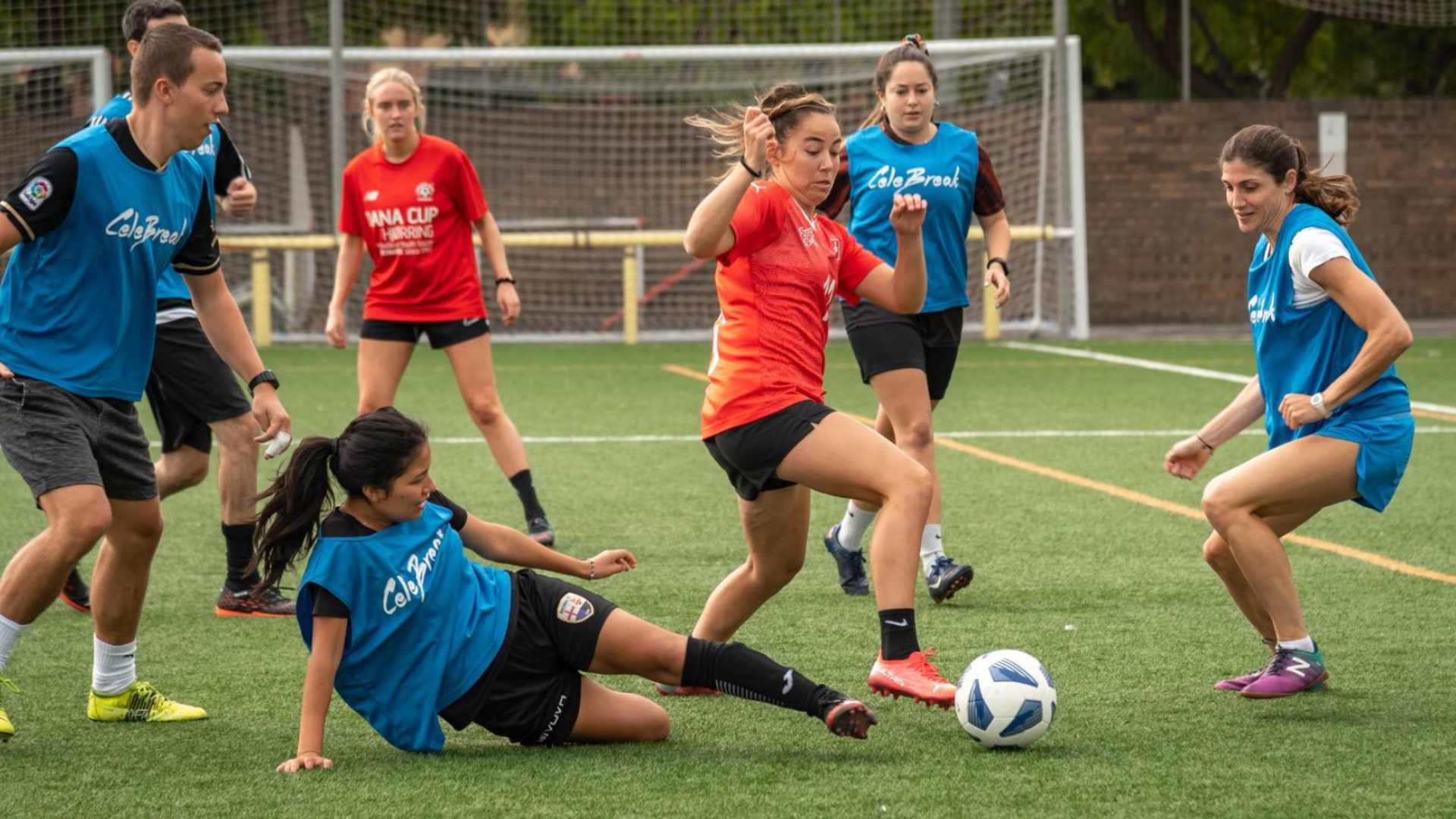Nutrition can be the difference between a mediocre game and an extraordinary one. The pre-match diet is vital to maximizing your performance on the pitch. Hence the importance of knowing what to eat before a football game.
When it comes to playing soccer, your performance on the pitch depends not only on your physical ability and playing strategy but also on how you prepare your body, including your diet.
The foods you eat before a game can significantly impact your energy, stamina, concentration, and recovery ability.
To answer the question, what to eat before a football game? We must understand that pregame nutrition has two main goals: maximizing energy stores and maintaining hydration.
What is the benefit of eating before a football match?
Adequate food intake before a soccer game has several important benefits that can significantly improve your performance on the pitch.
- Energy boost: The most obvious and significant reason to eat before a soccer game is to boost your energy levels.
Carbohydrates are the main energy source for your body during a high-intensity match.
Eating a carbohydrate-rich meal before the game can give you the energy you need to perform at your best throughout the game.
- Improved stamina: A proper diet can help you maintain consistent performance during a match.
It will give you the stamina you need to keep playing at your best, even in the dying minutes of a match.
- Prevention of dehydration and cramps: Eating before the game and adequate hydration can also help prevent dehydration and muscle cramps.
Dehydration can negatively affect your performance and may increase your risk of injury.
- Improved muscle recovery: Protein-rich foods help repair and rebuild muscles after intense physical exertion.
Eating protein-rich foods after a match helps speed recovery and reduces soreness and muscle inflammation.
- Increased mental focus: Proper nutrition improves not only your physical performance but also your cognitive performance.
On the other hand, the right diet ensures that your brain has enough glucose, which is essential to maintain concentration and mental sharpness during the match.
Include carbs when eating before a soccer game.
Carbohydrates are the main energy source during high-intensity exercise, such as soccer.
Therefore, a good starting point is to eat foods rich in carbohydrates.
Choose complex carbohydrates over simple ones, as they provide a more sustained release of energy.
Some healthy options include:
- Wholemeal bread
- Integral rice
- whole wheat pasta
- Potatoes
- Quinoa
Why include protein and fat when eating before a soccer game
While carbohydrates are essential for energy, protein plays a crucial role in muscle recovery.
After intense workouts or matches, your muscles need protein to rebuild and repair.
However, consuming them before the game is also important to prepare your muscles for the effort ahead.
Incorporate lean sources of protein into your pregame meal.
Although they do not provide the quick energy of carbohydrates, they are essential to keep the body functioning during the game.
Some healthy options include:
- Chicken or turkey breast
- Fish
- tofu
- Eggs
- Legumes
As for fats, they should be eaten in moderation before a football game and are an essential part of a balanced diet.
Healthy fats provide energy and aid in the absorption of fat-soluble vitamins.
However, avoid greasy or heavy meals, as these can hinder digestion and make you feel sluggish in the field.
Opt for sources of healthy fats such as:
- avocados
- Nuts and seeds
- Olive oil
- Fatty fish like salmon or tuna
Remember that you only need a small portion of fat in your pre-match meal to reap its benefits without affecting your physical performance.
Maintain hydration when eating before a soccer game.
Hydration is an often underestimated aspect of pregame nutrition.
Soccer players can lose up to 2-3 liters of water per game through sweat, so hydration is crucial to maintain performance.
Water: Water should be your main drink. It is essential for all bodily functions and helps prevent dehydration.
Sports Drinks: Sports drinks can be helpful, especially during long games or hot weather.
They provide rapid replacement of fluids and electrolytes lost through sweat.
When to eat before a football game?
A carbohydrate-rich main meal should be eaten 2-4 hours before the game.
This allows food to be digested and nutrients absorbed into the body.
Pregame meals should be moderate in size and relatively low in fat and fiber to prevent feelings of bloating and gastrointestinal upset.
Pregame snacks
In addition to the main meal, you can consider a small snack 1 hour before the game to maintain energy levels.
Snacks like a banana or granola bar should be high in carbohydrates and easy to digest.
What to eat after a football game
Nutrition does not end when the referee whistles the end. Post-match recovery is equally crucial.
A protein and carbohydrate shake or balanced meal should be consumed within 2 hours of the game to aid muscle recovery and replenish energy stores.
Frequent questions
How long before the game should I eat?
You are eating a carbohydrate-rich meal 2-4 hours before the game is recommended. This allows your body enough time to digest the food and use the nutrients effectively.
What foods should I avoid eating before a soccer game?
Avoid unfamiliar foods. Keep your pregame meal based on those you know are good for you and give you energy. Also, fatty and fried foods can be heavy and difficult to digest, affecting your performance in the field.
Is it necessary to consume protein before a soccer game?
Although protein is essential for muscle recovery after the game, it is not the main energy source during the game. Consuming moderate protein at your pregame meal is beneficial, but most of your protein intake should be reserved after the match to aid muscle recovery.
How much should I eat before a soccer game?
How much you should eat before a soccer match will depend on your individual needs, the length and intensity of the game, and the amount of time between your pre-match meal and the start of the game. In general, you should eat enough to feel satisfied but not full, as feeling too full can make you feel sluggish and affect your performance.
Conclusion
As you prepare for a soccer game, remember that proper nutrition plays a crucial role in your performance on the field.
Here’s a summary of the key things to consider when eating before a soccer game:
- Drink plenty of water and consider sports drinks to replenish the electrolytes lost during exercise.
- Choose complex carbohydrates for a sustained source of energy.
- Incorporates lean sources of protein for muscle recovery and tissue maintenance.
- Eat a small serving of healthy fats for extra power.
- Include a variety of fruits and vegetables to get the necessary nutrients.
- Control portion sizes, allow enough time for digestion, and avoid unfamiliar foods and fatty and fried foods.
Remember that each person is unique, and you may need to adapt these guidelines based on your needs and preferences.
It’s always a good idea to consult a health professional or sports nutritionist for personalized recommendations.
By following proper nutrition before the game, you’ll be in a strong position to perform your best on the field.
CeleBreak is football for everyone.
To play soccer, you don’t need to bring together two teams, just download the CeleBreak App and start enjoying this sport.
CeleBreak organizes friendly matches throughout the day on different fields so that you can play when and where you want,
Also, you can choose your favorite modality, women’s, men’s, or mixed football, as well as fields with natural or artificial grass.
Download and play!



